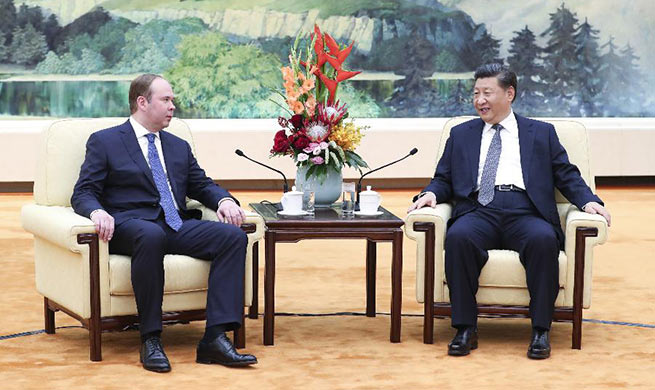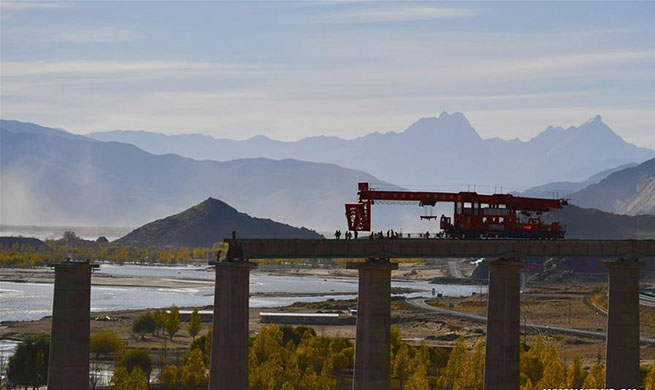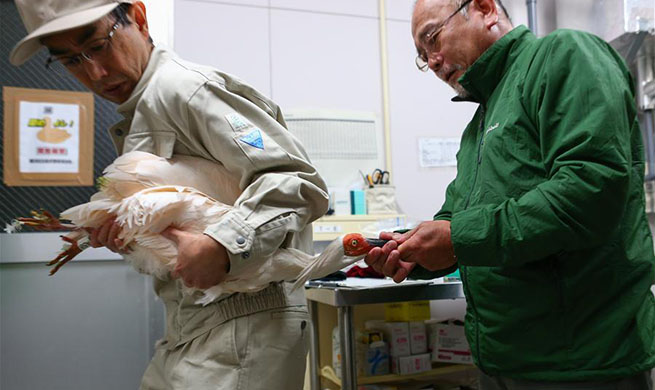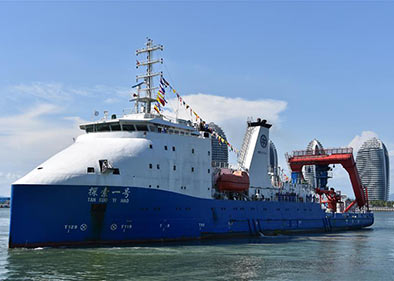BRUSSELS, Oct. 18 (Xinhua) -- British Prime Minister Theresa May told leaders at the European Summit in Brussels on late Wednesday that she would consider an extension of the post-Brexit transition period for an additional year to make it 3-year long, in an attempt to break through an impasse in negotiations over the Northern Irish border.
Speaking to other EU leaders before a European Council working dinner, May said she would consider the transition period extension as part of a compromise on the Irish border.
Brexit talks appeared to fall apart on Monday when the EU's insistence on a Northern Ireland issue left the British prime minister stuck between hardline members of her coalition government unwilling to accept a customs border in the Irish Sea.
The EU refuses to accept any deal that does not respect the Good Friday agreements, which bans any hard borders between Northern Ireland and the Republic of Ireland, but the Britain has not been able to propose a solution that would respect EU regulations necessary for avoiding a hard border.
Brussels has insisted a Northern Ireland-only "backstop" in case a treaty cannot be reached during the post-Brexit transition period. In such a case, a customs border would separate Northern Ireland from the rest of Britain, a move that has been flatly rejected by Democratic Unionist Party members of parliament, who are members of the governing coalition in Westminster.
European Council President Donald Tusk told reporters Tuesday that the British position left him with "no grounds for optimism" about reaching a deal on Brexit, and insisting that Brussels was "preparing for a no-deal scenario."
Statements on Wednesday from both France and Germany confirmed that the two powerful EU players were both making preparations for a Brexit without a deal.
The French government tabled a draft law Wednesday that covered emergency provisions in the case of no deal that would require visas for British nationals traveling to France, thus leaving British residents in France with "irregular" legal situations, while holding up trade at the borders.
In Berlin, German Chancellor Angela Merkel told German representatives Wednesday that it was "only fitting as a responsible and forward-thinking government leadership that we prepare for every scenario. That includes the possibility of Britain leaving the EU without an agreement."
While Donald Tusk indicated Tuesday that he still hoped for "creative solutions," and that he would ask Theresa May for "concrete proposals" at the European Summit, the impasse on the Northern Irish border remains unresolved.
A UK-wide solution that would allow Britain to respect specific EU rules in order to prevent a hard border in Northern Ireland has been evoked, but until such a proposal is fully-realized the EU has demanded a failsafe mechanism.
Theresa May has stated that no compromise of the British union would be acceptable, she appears to be considering a proposal from EU lead-negotiator Michel Barnier to extend the transition period from 2 to 3 years.
"Brexit must be orderly, for everyone and for all the issues, including on the island of Ireland," Michel Barnier said Wednesday, insisting "we need time, we need much time, much more time, and we will continue to work in the next weeks calmly and patiently."
May's critics within Britain have already started attacking her position, with the pro-Brexit far-right party UK Independence Party's leader Nigel Farage tweeting an extended transition period "may mean we never leave at all."
European Parliament President Antonio Tajani told reporters Wednesday evening that he "did not perceive anything substantially new in content" in Theresa May's speech.
Despite this, Tajani maintained cautious optimism, saying "we shall do everything we can to bring about positive development."
European heads of state and government will have to decide whether to call an urgent European Summit in November to handle Brexit issues, a move which will in itself require a certain amount of progress, according to observers.
If insufficient progress is deemed to have been made, drafting of agreements may be left until the next currently scheduled European Summit in December.













